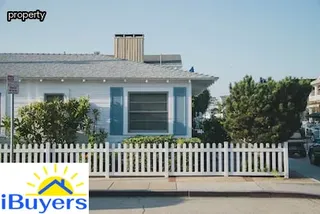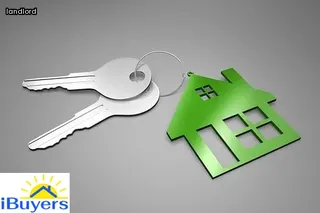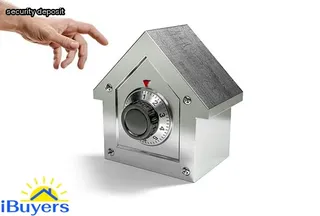As a landlord, it is important to understand your rights when dealing with tenant damage to your rental property. You have the right to expect tenants to take care of the rental property and leave it in the same condition as when they moved in, minus normal wear and tear.
Tenants are responsible for any damages caused beyond normal wear and tear, including intentional or negligent damage from pets or guests. When tenants fail to fix the damage, you may be able to deduct repair costs from their security deposit or pursue other legal means for compensation.
It is also within your rights as a landlord to terminate a lease if the cost of repairs would exceed a tenant's security deposit. Knowing your rights helps ensure that you are not taken advantage of and that you are protecting both yourself and your rental property.

As a landlord, it is important to protect your rental property from tenant damage. To ensure that your investment is secure, there are several essential tips you should follow.
First, always do a thorough walk-through of the property with the tenant before they move in and after they move out. This will help identify any existing damage and set expectations for the tenant's level of care for the rental.
Second, document all repairs and maintenance done on the property and keep them on file for future reference. Additionally, use a written agreement that clearly details what is expected of tenants when it comes to cleanliness and how damages should be reported.
Lastly, require tenants to purchase renter’s insurance which can help cover any accidental damage caused by the tenant during their stay at the property. Following these tips can help protect your rental property from costly tenant-induced damage while ensuring a smooth tenancy experience.
When a tenant causes damage to your rental property, it is important to be aware of the legal requirements for reporting this damage. In most cases, landlords are obligated to disclose any material defects or damages in the rental property before they enter into a lease agreement with a tenant.
This includes any existing damages or defects that were caused by prior tenants. Landlords must also provide tenants with an itemized list of any pre-existing damage and repair costs at the start of the tenancy, so that there is clear documentation of what was present when the tenancy began.
Additionally, landlords are required to keep detailed records of all repairs and maintenance work done on their rental properties in case future disputes arise. If damage has been caused by a tenant, it is important to inform them in writing as soon as possible and document any conversations you have had with them.
Finally, if you plan to pursue legal action against a tenant for damages, you should consult an experienced attorney who can help you understand your rights and obligations under your state’s landlord-tenant laws.

When renting out a property, it is important to understand the potential risks associated with malicious tenant damage. Tenants may cause intentional destruction to the property in order to avoid paying rent or other costs related to their lease.
As a landlord, it is your responsibility to take action if you discover tenant damage on your rental property. The first step is to document the damage and contact the tenant about the issue.
Depending on the situation, you may also want to consider filing a police report and seeking legal advice for further action. To protect yourself from malicious tenant damage in the future, make sure that all tenants are aware of your policies before signing any lease agreement, and be sure to conduct regular inspections of the property so that any issues can be addressed immediately.
Additionally, it may be worth considering additional insurance coverage for rental properties so that you can have some financial assistance in case of major damages caused by tenants.
When a tenant causes damage to a rental property, it is important to establish whether the damages are accidental or due to negligence. Accidental damages are typically covered by the tenant's security deposit, while damage caused by negligent acts may require the tenant to pay for repairs.
It is essential for landlords and tenants alike to understand their legal rights and obligations in such cases. Landlords who have written leases should check these agreements for specific language regarding property damage repair costs.
If accidental or negligent damage occurs and no lease exists, it is ultimately up to the landlord and tenant to decide who pays for the repairs. In some cases, a landlord might choose not to pursue compensation from the tenant if the cost of repairs is minimal or if they consider it an act of goodwill.
On the other hand, tenants may be required to pay for replacement costs or other expenses related to repairing damages caused by their negligence. Ultimately, landlords need to protect their interests when dealing with tenants who cause damage and take appropriate action based on each individual situation.

If a landlord fails to report tenant damage to their rental property, they may face several consequences. First and foremost, if the damage is not reported, it will likely not be fixed or repaired in a timely manner.
This can lead to further damage that can be costly for the landlord in terms of repair costs and lost rental income. Further, failing to report the damage could potentially leave landlords vulnerable to legal action from tenants who may claim they were never informed of the damage and that it affected their living conditions in an unreasonable way.
Additionally, failing to report tenant damage can be detrimental to landlords' reputation among other tenants, as it suggests they are not properly managing their properties. Furthermore, landlords may also have difficulty finding new tenants if they do not keep up with repairs due to tenant-caused damage.
In conclusion, it is important for landlords to take prompt action when reporting tenant damage in order to avoid potential problems down the road.
Landlords should take steps to reduce the risks of tenant damage to rental properties. Screening tenants carefully is a key element when it comes to reducing property damage.
It's important to conduct a thorough background check and verify each tenant's employment, income and rental history. Landlords should also create clear expectations for tenants in the lease agreement.
This should include language regarding prohibited behavior, such as smoking indoors or having unauthorized pets. Additionally, landlords should clearly outline the consequences of violating any terms of the lease agreement.
Providing tenants with regular maintenance is another strategy for reducing property damage. Regularly inspecting the property will help identify any potential issues that need to be addressed before they become more costly problems in the future.
Furthermore, creating a paper trail including photographs of the rental property at move-in and move-out is an effective way to document any damages that occurred during a tenant's residency. Finally, setting aside reserves in case of emergency repairs can help landlords minimize financial losses due to tenant damage.

Having established policies in place before signing a lease agreement is essential for any landlord. Knowing how to handle tenant damage to your rental property can be a tricky situation, and without clear regulations in place, it can quickly become overwhelming.
It's important to understand the extent of damage and what needs to be done to repair it; from there, you'll need to consider who will take responsibility for the cost of repairs, either through tenant deposits or other means. Establishing these guidelines ahead of time helps protect both parties should any problems arise with tenant damage.
Additionally, outlining expectations in the lease agreement gives tenants an understanding of the landlord’s policy regarding damages so that they are aware of the consequences beforehand. Overall, having policies in place prior to signing a lease agreement is key when it comes to handling tenant damage and making sure that both parties are safeguarded against any unfortunate losses.
As a landlord, discovering that your rental property has been damaged is a stressful experience. The first step should be to assess the damage and determine whether it is the tenant’s responsibility or the result of normal wear and tear.
Depending on the situation, landlords may need to consult their lease agreement and state law to figure out who is liable for repair costs. Once the cause of the damage has been determined, landlords should contact their tenants as soon as possible to discuss repairs and payment.
If necessary, a written record of all communication should be kept in case it needs to be presented in court later on. After repairs have been made, tenants may be required to pay for any associated costs depending on their contractual obligations.
Landlords may also choose to withhold security deposits or even evict tenants if they are unable or unwilling to pay for damages caused by their negligence or malicious intent. In any case, it is important that landlords take swift action following the discovery of property damage in order to protect their rental investments.

If a tenant refuses to pay for damages caused to your rental property, it is important to take decisive action. Depending on the situation, you may be able to resolve the issue without involving legal action.
Open communication between both parties is key; send a formal letter outlining the damage and the cost of repair, with a deadline for payment. If that does not work, contact an attorney and consider filing suit - this will send a strong message that you are serious about recouping any costs incurred by their irresponsible actions.
Be sure to document all conversations and correspondence throughout the process. Additionally, you may need to consult local rental laws on how best to proceed; many areas have regulations regarding tenant-landlord disputes which can help guide your actions.
Finally, if they remain unresponsive or unable to pay due to financial hardship, it may be necessary to evict them from your property in order to protect yourself from further losses or unpaid rent.
When a tenant causes property damage, it is important to know who is responsible for the costs associated with repairing or replacing the damaged items. Generally, the tenant's responsibility for damage to rental property depends on the terms of their lease agreement.
In many cases, tenants are held responsible for any damages they cause due to their own negligence or misuse of the property. However, some leases may require that a landlord cover specific types of damages regardless of how it occurred.
Landlords should always review and enforce their lease agreements in order to protect themselves from possible liability when dealing with tenant damage. Additionally, landlords should also consider purchasing renter’s insurance to protect against any potential losses caused by tenant-related damages.

As a landlord, it is important to take steps to prevent unauthorized alterations to your rental property. Proactively establish guidelines for tenant behavior in the lease agreement and clearly outline your expectations for taking care of the property.
Make sure tenants understand that any changes to the property must be approved in advance by you. Educate tenants on their responsibilities and include consequences if they fail to adhere to the guidelines outlined in the lease agreement.
Additionally, perform periodic inspections of the property to make sure that no unauthorized alterations have been made. If anything looks suspicious, investigate further and address any issues immediately with the tenant.
Taking these steps can help keep your rental property free from unauthorized alterations, ensuring its safety and value are maintained over time.
The use of technology to reduce the risk of tenant damage to rental properties is becoming increasingly popular. Smart home devices such as surveillance cameras, smoke alarms, and motion sensors can be used to monitor activity in the home and alert landlords when potential damage is occurring.
Surveillance cameras can also be used to capture footage of any illegal activities that may occur on the property, while smoke alarms and motion sensors can detect any sudden changes in temperature or movement that could indicate a fire or burglary. Additionally, landlords can install keyless entry systems which allow them to control who has access to their rental properties without having to physically exchange keys with tenants.
This helps landlords ensure that only authorized individuals have access to their property and reduces the chance of unauthorized entries leading to tenant damage. Digital lease agreements provide another layer of security for landlords as they allow for payment tracking and record-keeping throughout the duration of a tenancy agreement.
By using these technological solutions, landlords can significantly reduce the risk of tenant damage to their rental properties.

When it comes to rental property, there are times when a tenant may cause damage. Knowing when to take action against problematic tenants is an important part of managing rental properties.
When a tenant is causing damage to the property, it’s important to document everything and take appropriate steps as soon as possible. First, investigate the issue thoroughly and document any findings.
If necessary, confront the tenant with evidence of their damage and discuss potential solutions. If a tenant refuses to cooperate or repair the damage, legal action may be necessary.
In addition, landlords should consider their local laws regarding evictions and/or damages caused by tenants in order to determine what actions are available based on their particular situation. Landlords should also be aware that some states have specific laws in place that protect tenants from certain types of evictions or damages.
Understanding these regulations can help landlords ensure they are treating their tenants fairly while protecting their rental property.
As a landlord, it's important to consider all the potential risks associated with renting out your property. From tenant damage to natural disasters, you need to be prepared for anything that comes your way.
One of the best ways to protect yourself against these risks is by requiring renters insurance from your tenants. Renters insurance can cover accidental damages as well as liability in case of injury or property damage caused by the tenant or their guests.
It also provides coverage for theft and vandalism, which can be especially helpful if a tenant moves out and leaves behind damaged furniture or appliances. Taking this added step will not only help you protect your investment, but it will also give you peace of mind knowing that if something does go wrong, you'll have some financial protection in place.

When choosing an insurance provider for landlords, it is important to consider the specific coverage offered. Look for features such as tenant damage protection, landlord liability insurance, and loss of rent coverage.
Make sure the policy covers any events that may lead to property damage or loss of income due to tenant negligence or vandalism. Also consider coverage for natural disasters such as fires, floods, and earthquakes.
Be aware of any exclusions in the policy so that you can be prepared if an unexpected event occurs. Finally, make sure the insurance provider offers competitive rates and excellent customer service so that you have a reliable source to turn to during times of need.
Before signing a lease agreement with a tenant, it is important to vet the potential tenant. This is to ensure that they are responsible and able to fulfill their duties as a tenant.
Landlords should perform background checks on potential tenants and review credit histories to assess financial stability. It is also essential to contact previous landlords or employers for references.
Additionally, landlords should be sure to ask questions about the tenant’s lifestyle, such as whether they have pets or how many people will live in the rental property. Lastly, if possible, it may be useful to visit the tenant at their current residence to observe their living habits and gain insight into how they will treat your own rental property.
Taking all of these steps prior to signing a lease agreement can help protect your rental property from any damage caused by tenants and save you time, money, and hassle in the long run.
A: The court may order the tenant to reimburse the owner for any costs associated with the damage or make other arrangements to pay the claim, depending on the specific circumstances of the case.
A: The landlord can take the tenant to Small Claims Court and sue them for the costs of repairs.
A: If a tenant causes accidental damage to the rental property, they should report it immediately to the landlord and take steps to repair or replace the item.
A: The tenant should clean and repair the carpet, replace any damaged parts of the air filter, and cover all costs associated with repairing the damage.
A: Tenants should contact their landlord as soon as possible and provide details about the damage. Depending on the agreement, tenants may be responsible for paying for repairs or replacement of damaged items.
A: The Property Manager should assess the damage and estimate the cost of repairs or replacements. They should then compare this with the terms of the lease agreement and make an informed decision on what amount of judgment is appropriate. Ultimately, it is up to the Homeowners to decide whether or not they would like to take legal action against the tenant.
A: Tenants are responsible for keeping the rental property in good condition and repairing any damage caused by themselves or their guests.